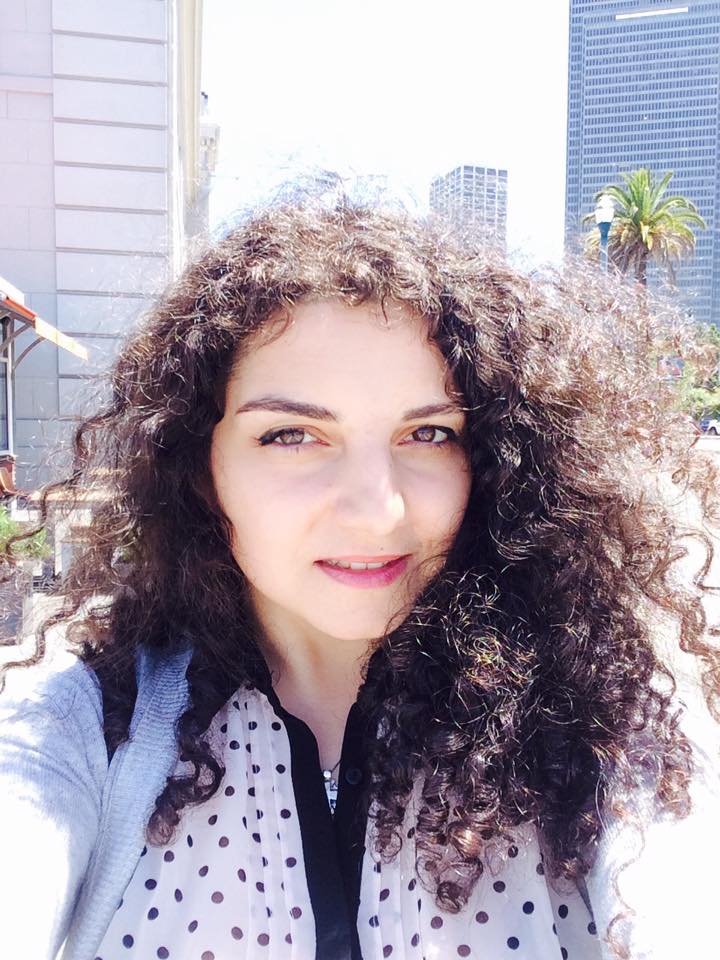Every year, entrepreneurs from around the world gather at the Global Entrepreneurship Summit (#GES) for a total of three days to network, mingle with investors, learn from a dazzling array of workshops, and most importantly -share ideas.
Like an entrepreneurial version of the Hunger Games, only the very best entrepreneurs and startups are invited to participate. Out of the 5000-plus who apply, only around 700 are selected to take part.
Armenia in the spotlight
This year, Ani Berberyan, co-founder of the startup MemTalk, had the privilege of being among the first Armenian startups ever to be invited to the GES which took place in Stanford. MemTalk is a digital storytelling mobile app that allows you to record your voice and take photos at the same time, making it easier to keep track of all your events or document your experiences and ideas.

The event was beyond Ani’s expectations, “Of course I knew that it was organized by the State Department and that even US President Barack Obama would be attending, but still to the last moment, I didn’t really imagine that it would be such a big event.” Ani and the team spent their time jumping between workshops and networking sessions. “The greatest skill was knowing how to balance the two and navigate through the networking process in a productive way.”
Luckily, MemTalk had also been selected as a GESPlus Participant for Emerging Youth and Women Entrepreneurs and so was given the opportunity to stay an extra day at the event. “Every time you talk to investors, you learn something new, for instance, what kind of questions they ask you and what they want to hear from you. Even when the questions were getting more personal and seemingly unrelated to her product, Ani realized that “they invest in teams and they want to know as much as possible about you and your team. So they ask you questions about your childhood and about your parents. You shouldn’t get annoyed with this, it’s just the way they try to get to know you.” She advises entrepreneurs to have 30 second, one minute, two minute, and three minute pitches prepared, “you will never know when or where you will meet investors.
When comparing the different participants’ experience of approaching, Ani noticed how some participants were approaching investors for the second, third, or even fourth time, but for the others it was not common to approach people again when they have once told you “no”. “Sometimes we assume that they (investors) are not going to listen to you or that you are going to annoy them because they’ve already refused your request. But while talking with different investors and mentors we got the advice to be persistent, because it shows that you really care about your product and that you want to succeed no matter what.”
According to Ani, the most important ingredients in a successful startup are a diverse team, persistence in execution, and a good potential market. “If you are talking to an investor, all they are interested in is what kind of background the team has. They are looking for diverse skills and whether you have all the necessary people to get the job done. And they also want to know how big your potential market is. You have to make sure your market is big enough, and that your product is solving a real problem.”
Ani noted how being a participant of the GES allows you to skip the first step of proving to investors that you are capable and worthy. “I talked to a lot of investors and I know what they need to see before they invest in MemTalk. So when I contact them the second time, having been at the GES and reached certain milestones, it will be easier for me to introduce myself.” Ani advises other entrepreneurs to apply to and attend events like the GES in order to gain recognition and learn about the mindset of Silicon Valley and other innovation hot spots. “It’s important to participate in these events and to be very open to networking because it makes the company more credible.
What’s next for MemTalk?
In the near future, Ani sees Memtalk as reinventing digital storytelling and gaining success in and recognition in the European and American markets. “What I would advise Armenian startups to do is to think globally. We have to work a lot at positioning our country globally and be able to create an ecosystem where government, private companies, and NGO’s work together to boost entrepreneurship;this is how Silicon Valley works and how Armenia should work as well. There are a lot of great labs like Kolba Lab who are supporting and encouraging entrepreneurs. Things will improve when there are a lot of successful startups in the market and when people recognize Armenia as the Silicon Valley of the South Caucuses.”